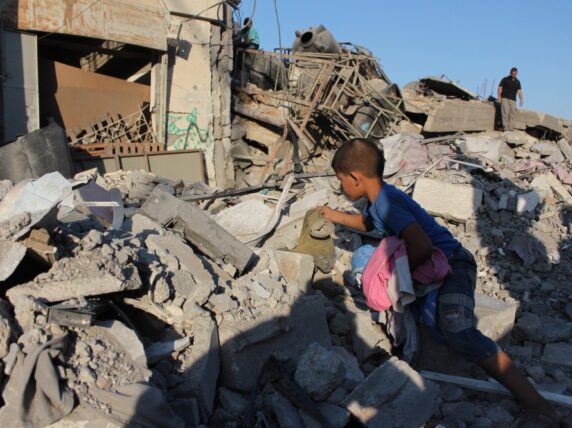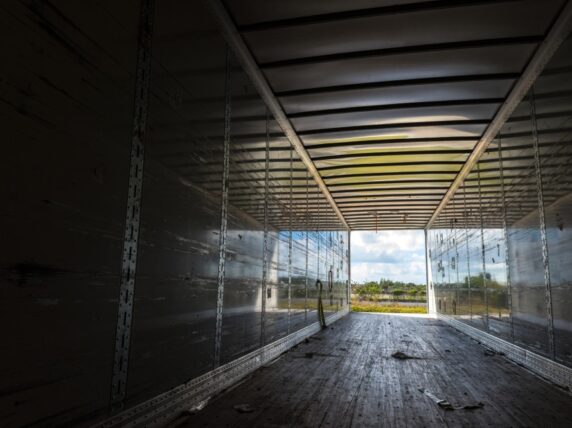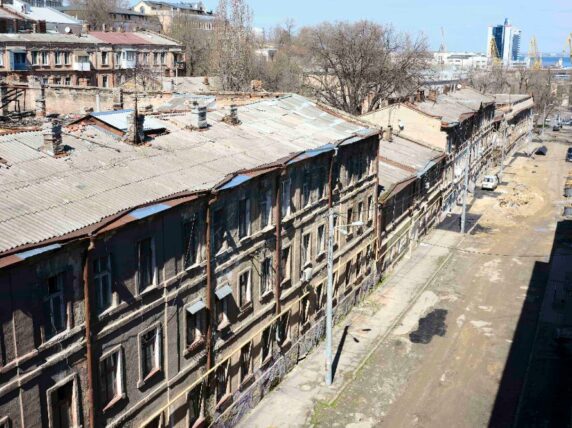How the Bond working groups spent 2021
Working groups are central to Bond. Our 40 groups comprise a diverse community of 3,000+ members who come together around key thematic areas in the development and humanitarian sector to learn, discuss challenges, influence policy-making and network.
This year has seen the highest member engagement with working groups in Bond’s history as we’ve observed members embracing the benefits of the virtual environment. Despite the challenges the remote world presents, the quality of convening across Bond’s working groups has been impressively high.
We’ve seen accessible and inclusive meetings attended by colleagues from across the UK and beyond, impactful advocacy wins and a set of high standard outputs in the form of reports, blogs and videos.
With this in mind, we asked group chairs to share their reflections of 2021 and to give us a taste of what to expect in 2022. Here’s what they had to say:
Feedback and Accountability Group
The Feedback and Accountability group has been a forum for learning from and exchanging information on experiences in making development interventions accountable to the people they serve. This is a critical issue as we attempt to move towards locally-led development.
Group meetings featured practitioners and case studies from Kenya, Nepal, South Sudan, Zambia and Somalia – with online meetings allowing more participation from people based in countries of operation. The group also succeeded in getting FCDO to publish its Smart Guide on Beneficiary Engagement, which is an excellent resource for the sector on feedback and accountability processes.
In 2022, we will be looking for more ways in which feedback and accountability can strengthen locally-led development.
Resilience Learning Group
In 2021, the Resilience Learning Group‘s focus has been on understanding and informing the UK’s approach to resilience. With COP26 at the front of many people’s minds, they also had a thematic focus on the impact their work has on the environment.
Subscribe to our newsletter
Our weekly email newsletter, Network News, is an indispensable weekly digest of the latest updates on funding, jobs, resources, news and learning opportunities in the international development sector.
Get Network NewsFollowing the merger of DFID and FCO, the group has been reaching out to key teams within FCDO to build a better understanding of FCDO’s approach to resilience. They worked with us on our briefings for FCDO on the development of the new International Development Strategy. And they organised a roundtable discussion about their environmental impact, both positive and negative, and how to adjust operations to reduce waste and have a more positive impact on the local environments where they operate.
Looking ahead to 2022, the Resilience Learning Group will be bringing together leading thinkers and practitioners on early warning action to share lessons and challenges and to help shape the direction of the sector’s approach to this topic.
Locally-led development groups
Building on momentum from Bond’s sector catalyst project and the launch of “Catalysing locally led development in the UK aid sector” in July 2021, three new working groups were formed, concentrating on three areas in the journey towards locally-led development.
The Supporting Practice for Locally Led Development working group has recruited over 50 member organisations with varying models and approaches to supporting development, humanitarian, and peacebuilding initiatives globally.
The group provides a learning space to explore live questions, challenges, and pathways towards locally-led development. To date, the working group has conducted a survey to better understand where organisations are in their journey towards locally-led development, and looked at five themes: Governance, partnerships, use of power, organisational culture/mindset, and decision-making.
This evidence-based approach will drive the establishment of action learning sets within the working group that capture, analyse, and respond to barriers that prevent the promotion and practice of authentic locally-led development.
The focus of the Roadmap for Locally Led Development Working Group is to look at what actions UK INGOs can take to move the locally-led agenda forward. Looking for buy-in and to promote, advocate, and build upon existing frameworks. This year we concentrated efforts on mapping existing commitments to shift power, including speaking to those leading initiatives such as the NEAR network and the Shift the Power movement to gather learnings.
In the new year, we will be engaging the UK INGO sector to develop a whole organisation commitment and approach to locally-led development.
The Changing Donor Policy and Practice for Locally Led Development Group has got off to a really good start, having already achieved more than expected in the first six months. They hosted a successful deep-dive session with the FCDO for the International Development Strategy and we hope to see locally-led development reflected in the strategy when it is published early next year. They are continuing to build their relationship with the FCDO and are hopeful for more consistent engagement with them on locally-led development in 2022.
Funding groups
The Funding Working Group has gone from strength to strength this year, hosting discussions with funders such as Open Societies Foundation and the Waterloo Foundation. Most recently, we hosted a joint meeting with the Changing Donor Policy Group, where, for the first time at Bond, two of the largest aid donors, FCDO and USAID, came together with Global Giving to talk about, and share their commitment to, what funders and civil society can do to support locally-led development.
The EU Funding Policy Working Group has continued to plug the gap and support UK-based INGOs to understand that they can still access EU funding as a third country.
The Impact Investing Group has recently recruited new steering committee members and will be starting off 2022 with a panel discussion on why it’s time to start looking seriously at development funding beyond philanthropy, with speakers from Chance for Childhood, BRAC, Send a Cow, Opportunity International and Real asking questions around “does a commercial approach create more sustainable change?” and “is failure to break away from traditional philanthropy a mindset issue?”. The group is keen for people to join the discussion and help us set the agenda of the group for the coming year.
Project Management Group
The Project Management Working Group collectively hosted some great sessions this year. In conjunction with the Small NGO’s Group, they hosted a session exploring Leadership Skills, led by Susanne Madsen, an internationally recognised speaker and author who specialises in executive coaching, leadership development and project management. In the same event, the group was joined by Peter Marlow, a board member at PM4NGOs, who gave a detailed insight into the ProjectDPro Practitioner Certification.
In September, the group explored cultural sensitivity in a session led by Oliver Carrick, professor of project management and entrepreneurship at Universidad San Francisco de Quito Ecuador. This harvested fruitful discussions around microaggressions and geographical pay inequities.
They also gained feedback through a survey on the content and structure of sessions, using the responses to guide future topics In 2022, and plan to incorporate more active participation in sessions. Keep an eye out for our next session coming in mid-January.
Communications Group
The Communications Group has recently undergone a relaunch, with two new co-chairs, Jane Lennon (communications manager at Primary Care International) and Oliver Arnold-Richards (marketing campaigns manager at Practical Action) who are working to ensure that the group will provide learning, support and inspiration for members’ communications work.
As a first step in the relaunch, members were invited to complete a survey which helped the group understand priorities and shape directions and priorities. From the feedback, it was clear that members look to the group for learning and development, and sharing challenges and solutions with peers. The most popular areas to focus on were ethical storytelling, decolonisation, brand and identity, and overall top-level strategies for communications work.
It was clear that group members want to unpack these issues together, so in 2022 the comms group will deliver more collaborative, hands-on, workshop-style sessions, and will use Bond’s new communities’ platform to set up future sessions and facilitate ongoing collaboration and networking between community members.
Monitoring, Evaluation and Learning Group
Throughout 2021, the Monitoring, Evaluation and Learning (MEL) Group remained active through online events, harnessing various virtual collaboration platforms to keep sessions as interactive and engaging as possible. The group also embraced one of the upsides of online engagement by hearing presentations from Uganda and Tajikistan.
In March, they were joined by speakers from Sightsavers, HealthProm, Hayot dar Oila and ALNAP to hear about good practice in ‘Remote Management of Evaluations’ – a topic pertinent to many of us in the context of global travel restrictions.
In June, they switched up the usual format to host “a participatory workshop on participatory workshops”. INTRAC provided an initial overview of the history and principles of participatory MEL, but then it was over to participants to practise. Small groups shared their ideas and experiences of participatory approaches in the design and planning of MEL processes, in data collection and in using, sharing, and making sense of information generated through MEL.
Finally, in November, they explored how a programme’s funding model can impact upon its MEL. Speakers from All We Can, Concern for Children and Women Empowerment (COFCAWE) and World Vision talked about the merits and risks of approaches, including flexible long-term partnership agreements, commercial contracts, and payment by results.
Through a members’ survey and group discussions, the group have identified activities that their members would appreciate, such as facilitating a mentorship scheme and improving the resources available on our group page – ideas that they will continue to explore in 2022.
Technology for Development Group
The Technology for Development Group hosted a meeting in May with the Trade Justice Movement focused on digital chapters of trade rules and the implications these have on development goals. The session also covered issues such as rights, ethics and equality. The meeting included speakers from the University of Oxford, the Third World Network, IT For Change, and the Trade Justice Movement.
In July, the group ran a survey with members in order to shape its future. They asked members to rate sessions they had attended, vote for future themes and specify the most valuable aspects of meetings. The feedback from the survey will be utilised to shape the future of the group and they have begun preparations for organising events based on the feedback received. Anca Toader, Digital Innovation Lead from BBC Media Action, also joined the group leadership.
In early 2022, the group is hoping to have its first meeting in collaboration with the Civic Space group, focusing on the opening and closing of online civic spaces. This will be followed by future meetings on AI in humanitarian work and the effectiveness of technology during the pandemic.
Join us in 2022
Our advice for 2022? Join our 3,000-strong community of working group members.
You’ll get the opportunity to engage with colleagues to help transform the sector for the better, learn from experts in your field, advocate for change through influencing policy-making and broaden your contact list through networking with fellow Bond members.




